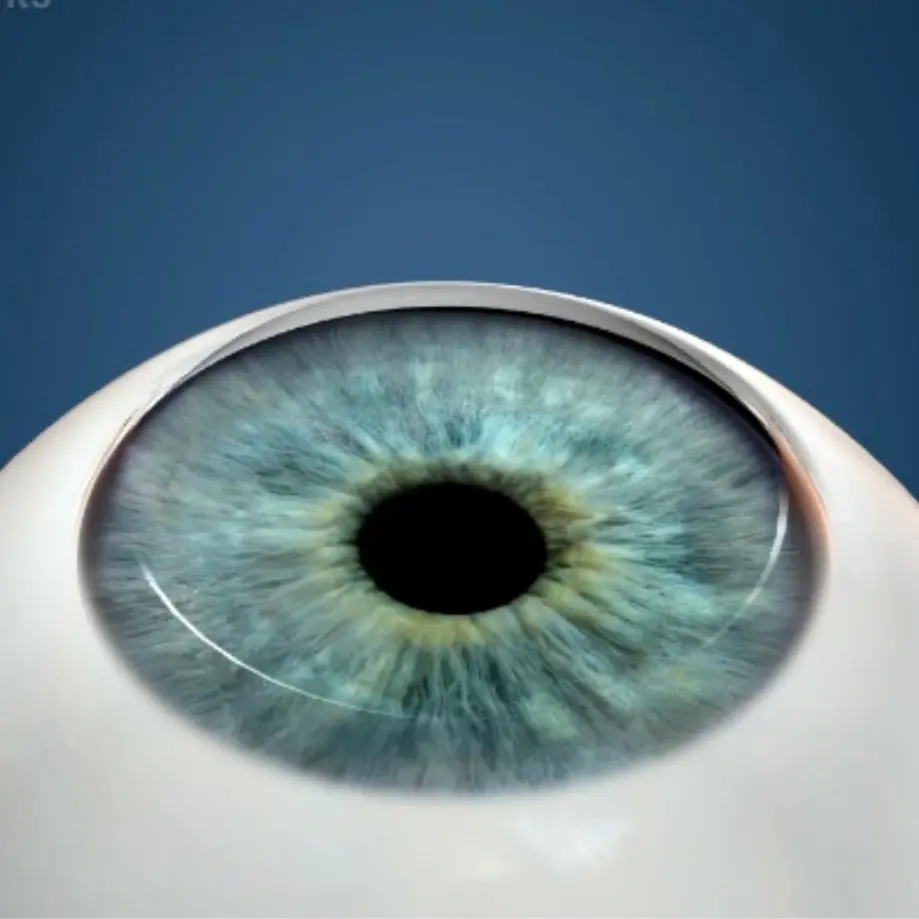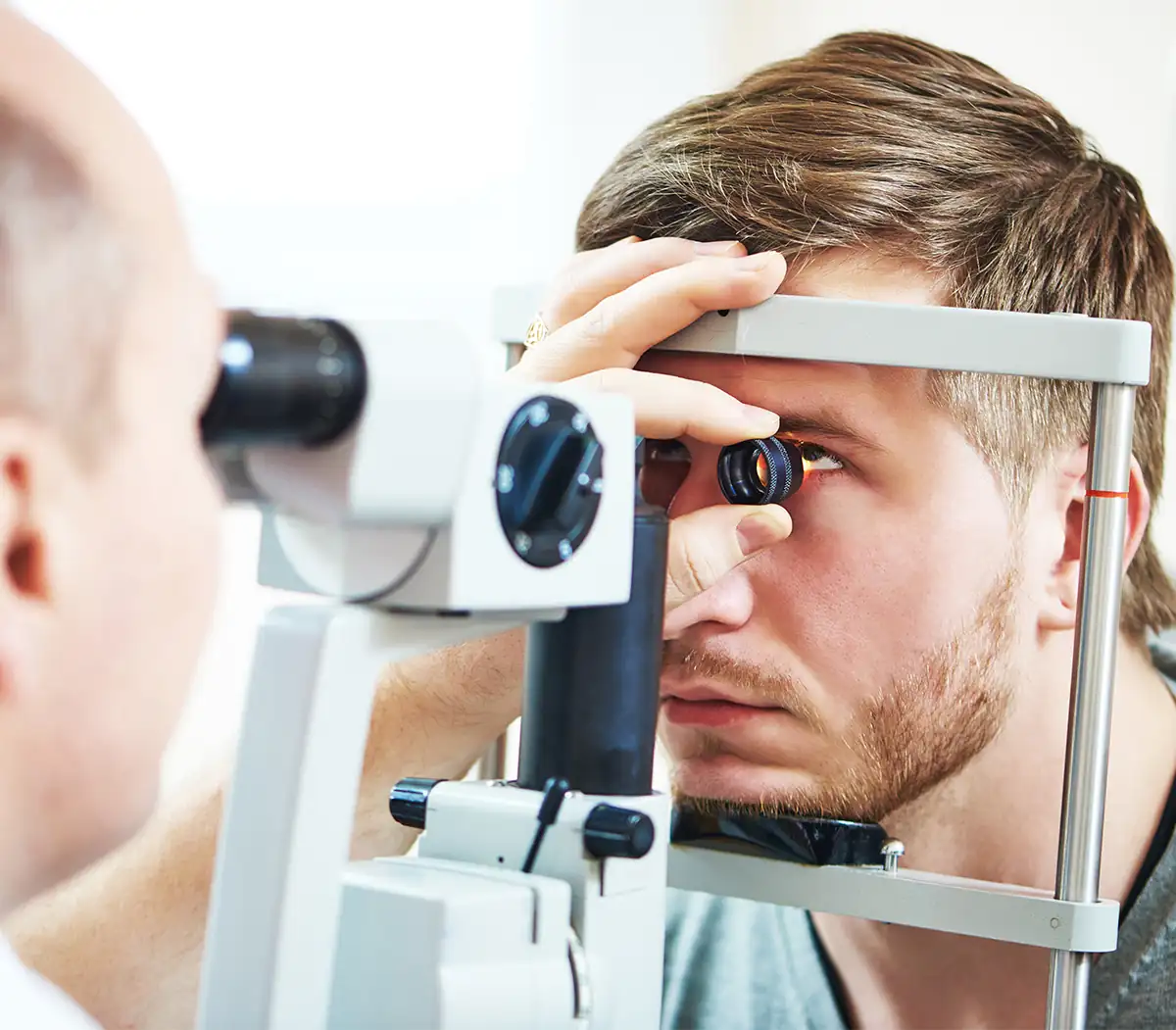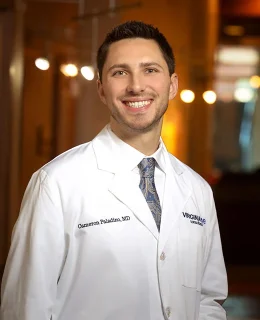
Corneal Disease & Treatment
What is the cornea?
The cornea is a clear, dome-shaped tissue at the front of the eye that focuses light, which is then delivered to the retina. It also acts as a shield to protect the eye against dust and debris. The cornea has five layers to it: epithelium, Bowman’s layer, stroma, Descemet’s membrane and endothelium. If the cornea becomes damaged–whether from injury, disease, or a genetic condition–the cornea can swell or become scarred, leading to clouded or distorted vision, even blindness. Additionally, any damage can be extremely painful.
Causes of Corneal Disease and Degeneration
There are many causes of corneal disease and degeneration. This includes trauma, infection, swelling after cataract surgery, and inherited disorders. Conditions that may cloud your vision and require a transplant include, but not exclusive to:

The Corneal Transplant Procedure
There are several forms of corneal transplantation procedures, and each type is targeted to treat certain disease. Fortunately, corneal transplants have an extremely high success rate, and more than 44,000 are performed in the U.S. each year. At our Norfolk and Virginia Beach eyecare practice, the procedure is typically performed as an outpatient procedure. You will be given eye drops and perhaps a sedative as well to help you relax throughout the surgery; a local or general anesthesia will also be used.
- Penetrating Keratoplasty (PKP) –your damaged cornea is carefully removed and replaced with a donor cornea of full thickness, which is carefully sutured into place. To complete your procedure, a shield is placed over your eye for protection.
- Endothelial Keratoplasty (EK) – many patients who suffer from corneal swelling problems due to diseases like Fuchs’ dystrophy can benefit from a partial corneal transplantation that replaces the inner-most part of the cornea alone. Corneal swelling occurs from a dysfunction of the endothelium, which is the inner layer, and preferentially treating this with an EK, with either a Descemet’s-stripping endothelial keratoplasty (DSEK) or a Descemet’s membrane endothelial keratoplasty (DMEK), can lead to quicker vision recovery.
- Deep anterior lamellar keratoplasty (DALK) – in certain instances, such as a mild corneal scar or in less advance forms of keratoconus, a DALK procedure can be very helpful. This procedure is a partial corneal transplant procdure that replaces the outer layers of the cornea only. The benefits of a DALK procedure include faster visual recovery and a decreased risk of corneal graft rejection.

Recovery from a Corneal Transplant
If you undergo the corneal transplant as an outpatient procedure, you will most likely be able to return home soon after your surgery. However, you will need someone to drive you. During the recovery period, it is important you follow your doctor’s home care instructions to maximize the potential success of the procedure. Such post-operative instructions include using eyedrops as prescribed, as well as avoiding rubbing or putting pressure on the treated eye. Any pain or discomfort can be controlled with over-the-counter medication.
A follow-up visit will be scheduled for the next day to ensure healing is going smoothly. Sutures typically are not removed for several months, and this will depend on the rate of your healing. It can take anywhere from three months to a year to achieve optimal vision results. If you have any questions throughout this period, please don’t hesitate to give us a call.
Risks & Complications
While the majority of corneal transplants are successful, it is possible for your body to reject the donor tissue. Signs of a rejected transplant include chronic eye discomfort, sensitivity to light, redness, and worsening of vision. If you experience any of these symptoms, please contact your surgeon. Other potential complications include infection, swelling, bleeding, and increased risk of glaucoma. However, all of these complications can be treated, and if needed, the procedure can be repeated. Although corneal transplants can improve your vision, any existing eye conditions can still affect your vision over time.
Contact Virginia Eye Consultants
If you would like more information about corneal disease and transplants, please contact us to schedule an appointment with a corneal specialist.
The doctors at Virginia Eye Consultants have either authored or reviewed the content on this site.

























